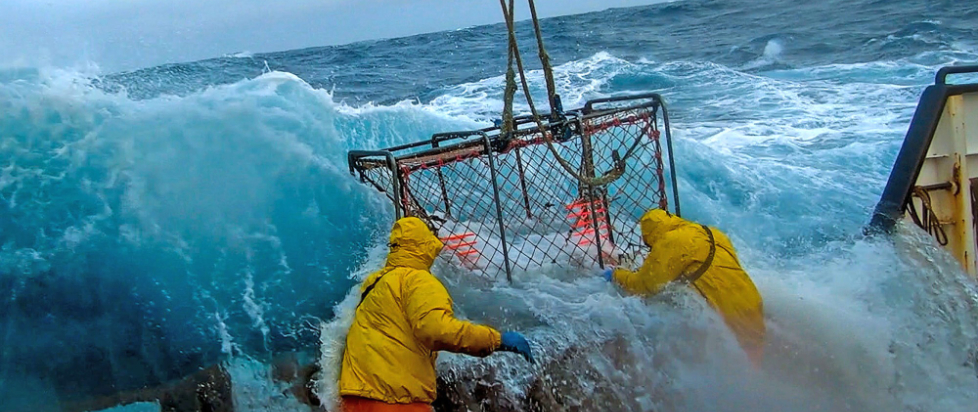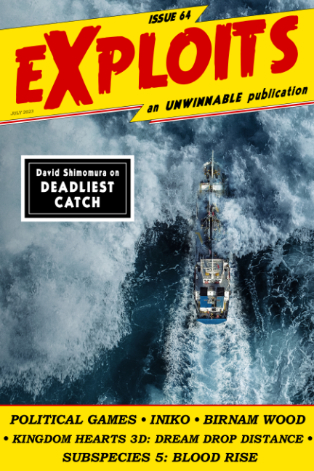
Deadliest Catch
 This is a reprint of the Television essay from Issue #63 of Exploits, our collaborative cultural diary in magazine form. If you like what you see, buy it now for $2, or subscribe to never miss an issue (note: Exploits is always free for subscribers of Unwinnable Monthly).
This is a reprint of the Television essay from Issue #63 of Exploits, our collaborative cultural diary in magazine form. If you like what you see, buy it now for $2, or subscribe to never miss an issue (note: Exploits is always free for subscribers of Unwinnable Monthly).
———
Discovery Channel has never known what they have with Deadliest Catch. Since 2005, Deadliest Catch has been an unflinching look at the ongoing tragedy that is the Bering Sea crab fishery.
The work is dangerous, and occasionally deadly, often done by people in extremely vulnerable positions who are constantly at the mercy of captains, owners and buyers operating under one simple organizing principle: the crab must flow. As the show wheels on, the increasing and intense effects of global climate change are on full display, from dangerous and frequent storms to the impending loss of the fishery entirely. And while Discovery and Mike Rowe might believe this is a show about American rugged perseverance, it’s perhaps our generation’s The Jungle.
Crab fishing can never be made safe. Some industries can’t. But over the course of the last 20 years, we’ve seen crew members speak openly about their lack of access to healthcare, the overall failure of the social safety net, the rampant issues with drug and alcohol abuse and how as an industry, most people would rather do something, anything, else. That is, if they could, because for many, the carceral state has pushed them to the edge of society. But without them, the crab would not flow. And neither would the show, a fact Discovery is grappling with using clever edits and shooting techniques as more and more prominent members of the show have had public run-ins with law.
Increasingly, the show now must also shoot around the closure of the various fisheries. The show’s first season was the last of the “derby” years where captains fought to catch as many crabs as possible during a limited time window. Due to the slow decline of population, all boats now operate under a “quota” system, a hard cap to how many pounds of crab they can fish. This wasn’t enough. The Alaska Department of Fish and Game now closes the various species seasons all together when they feel the population cannot sustain it.
But the crab must flow. To feed the ratings and to feed distant consumers paying premium prices built on the backs of workers who will never see half of the value of their catch. And as so many read The Jungle and failed to see the compelling socialist message, so too do we watch Deadliest Catch and finish the evening at Red Lobster.




